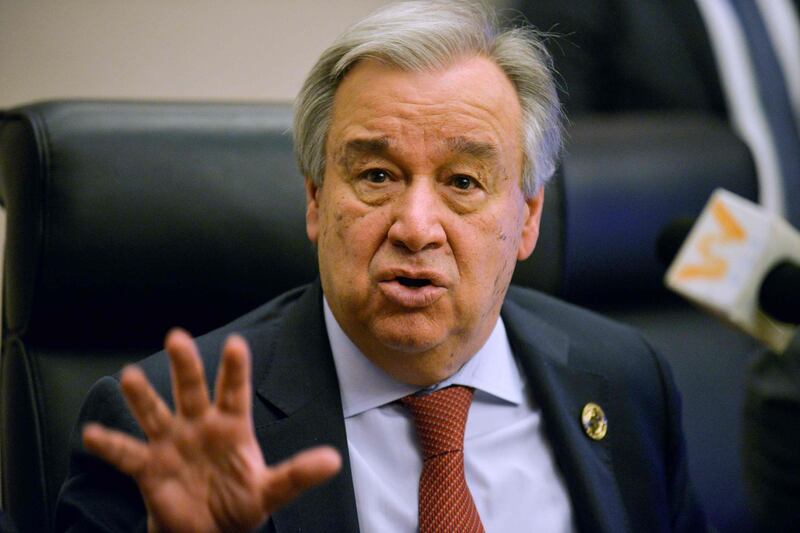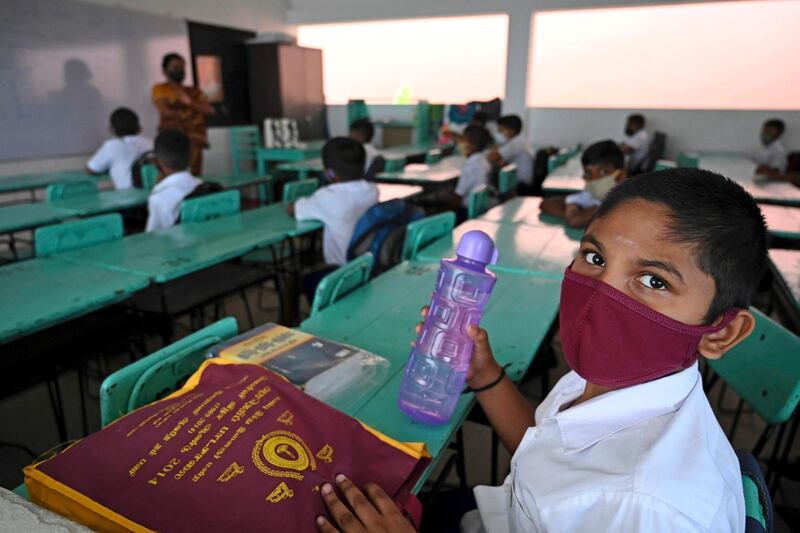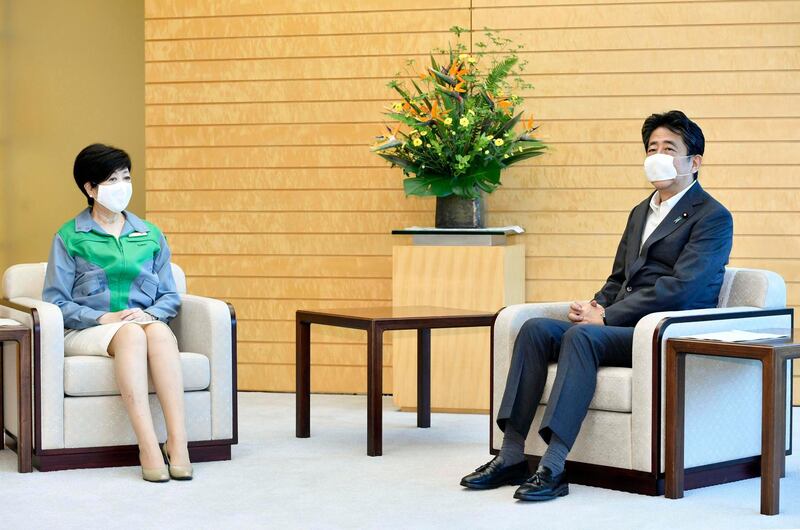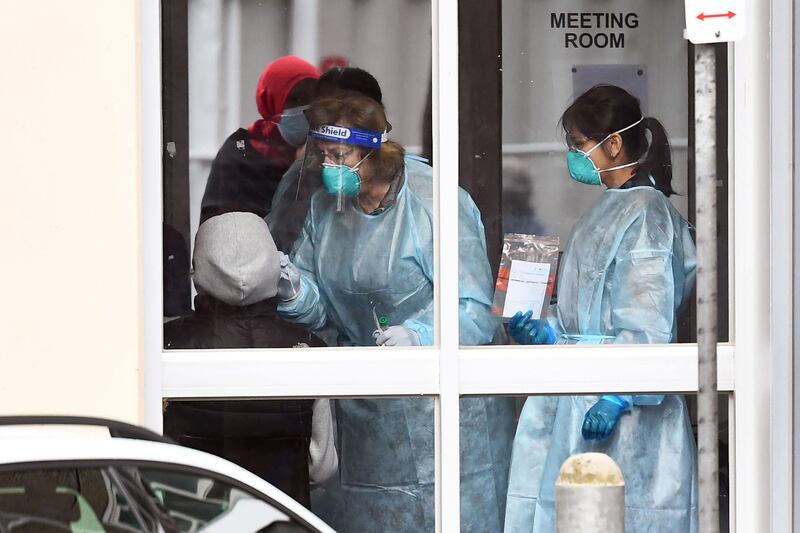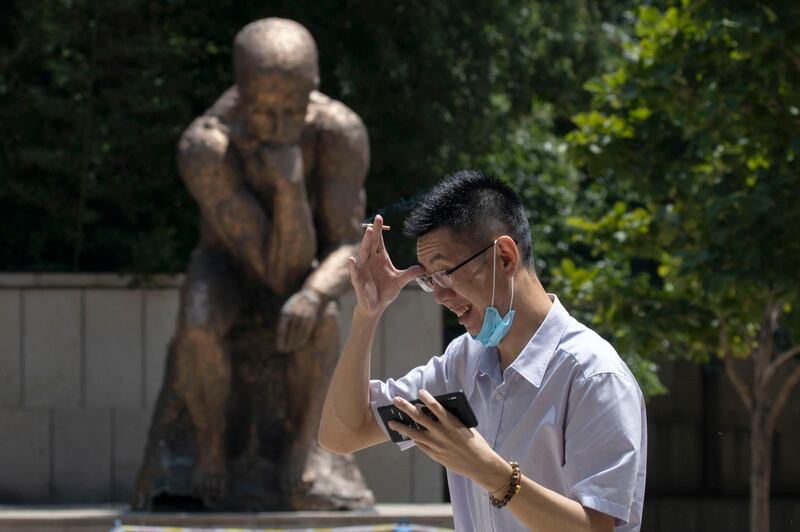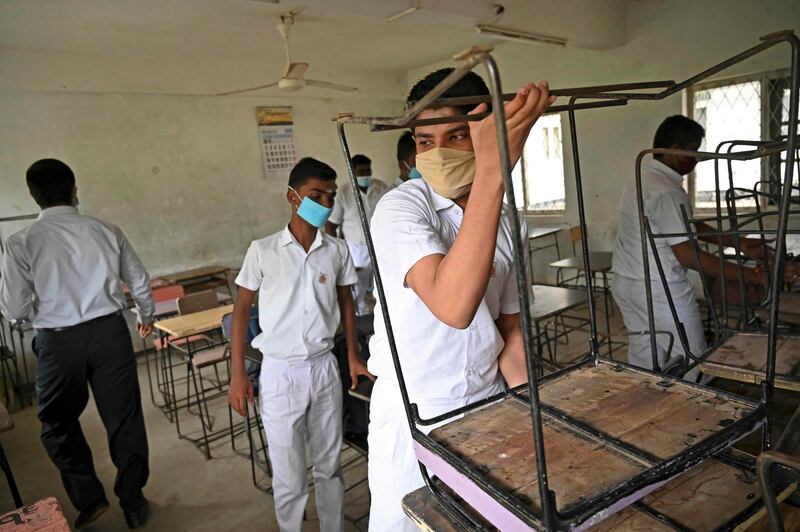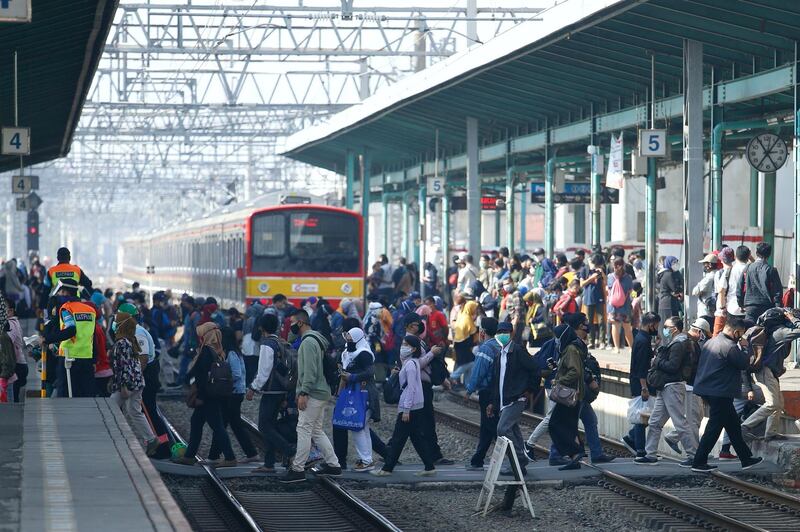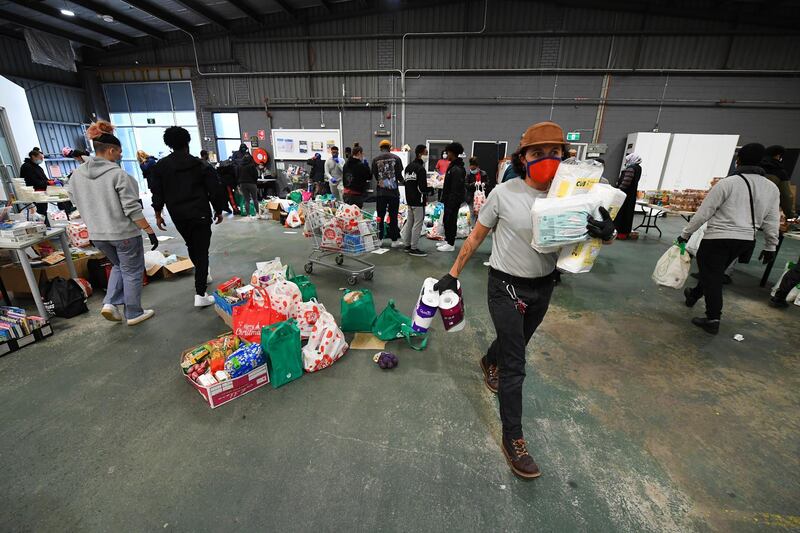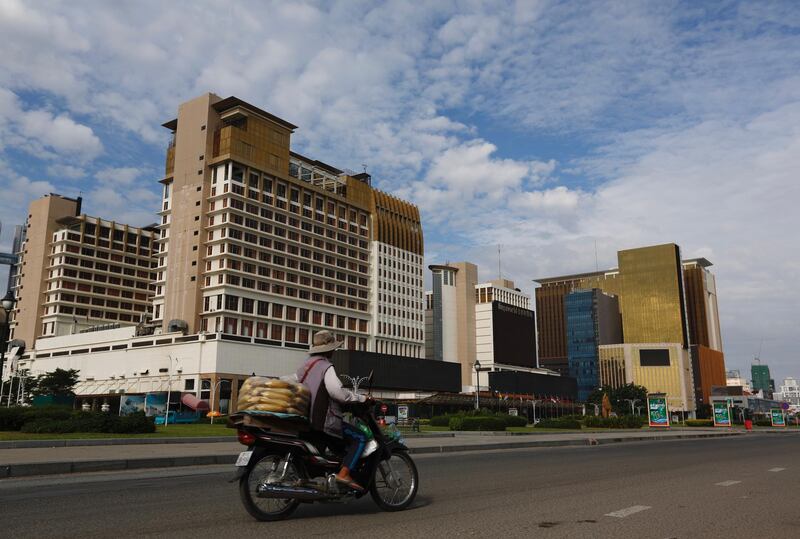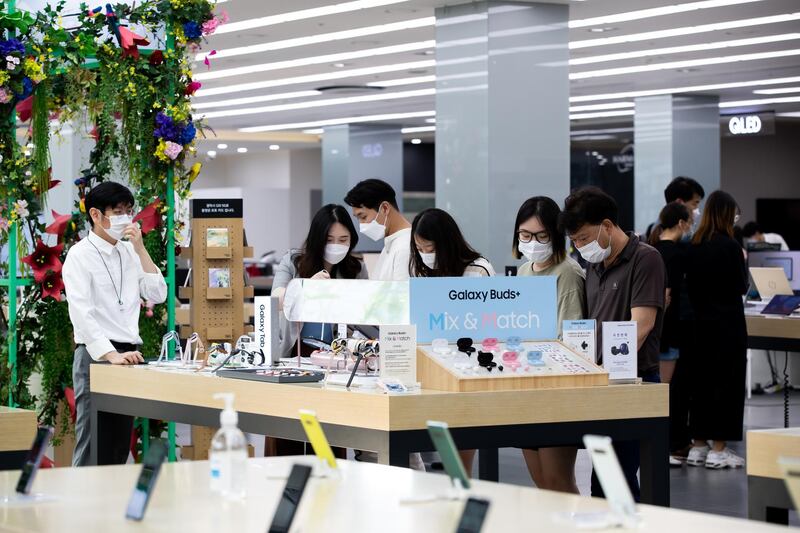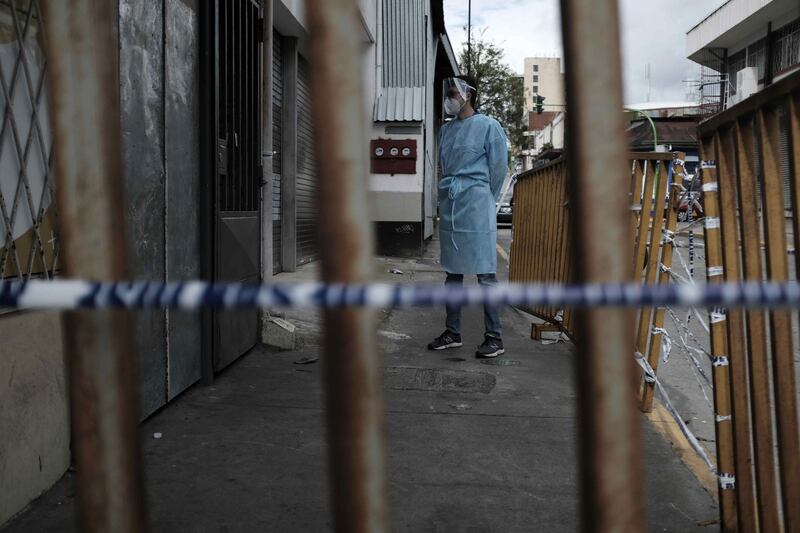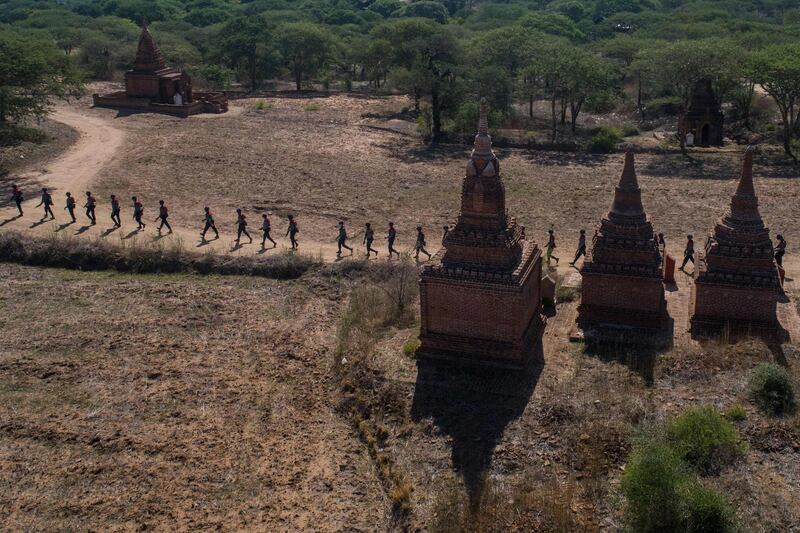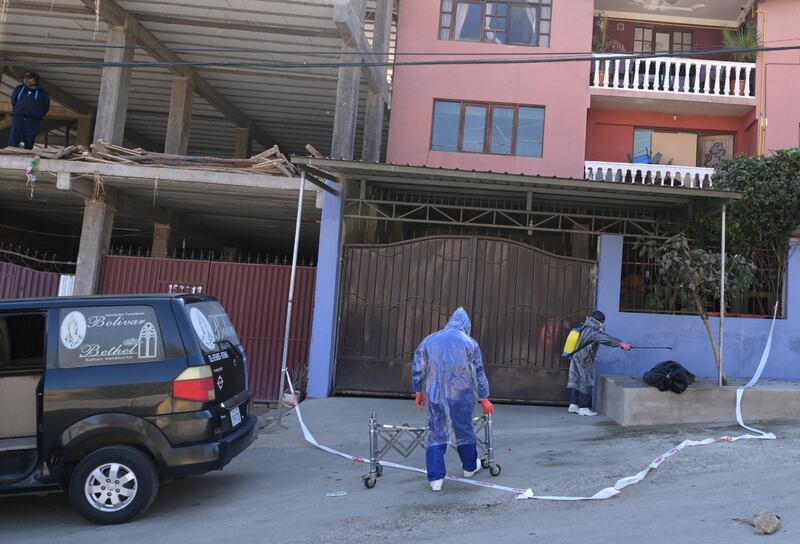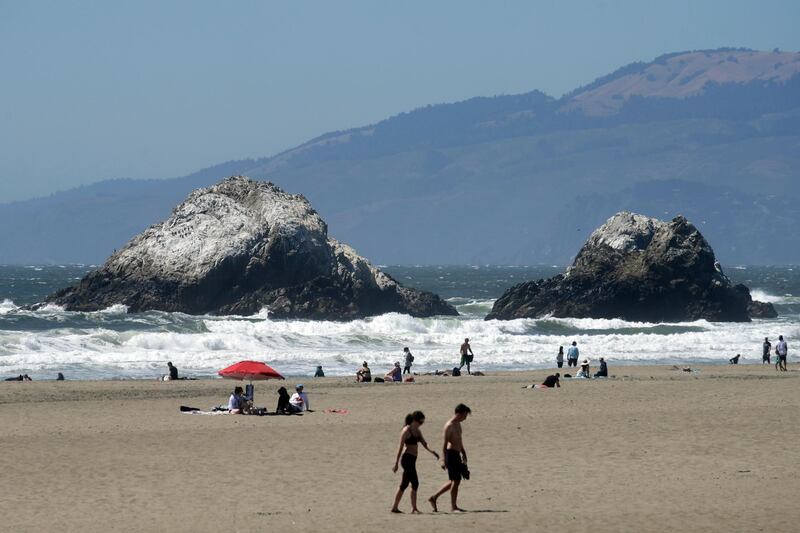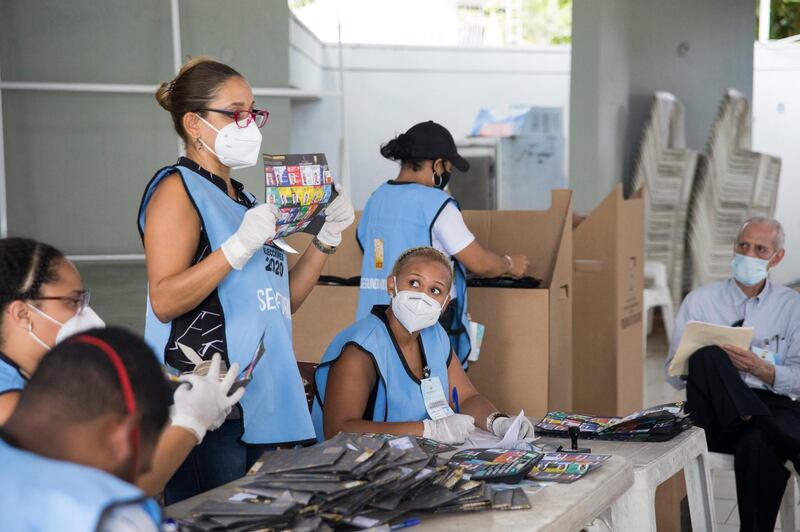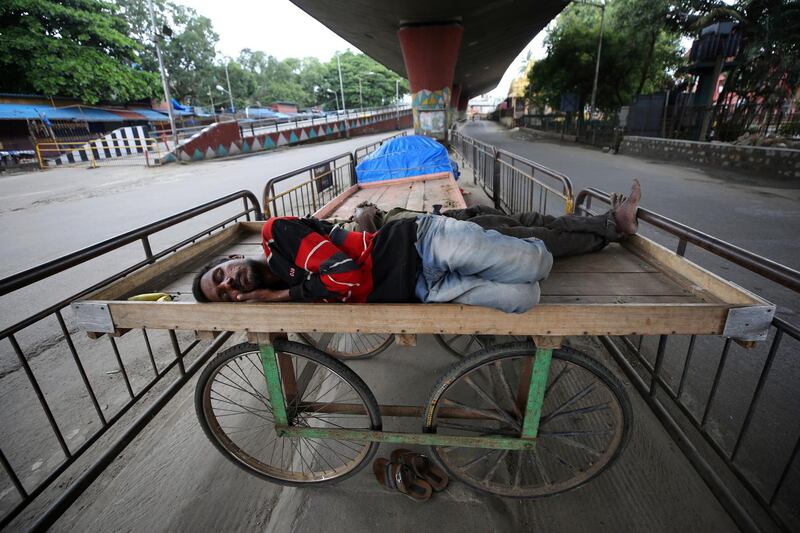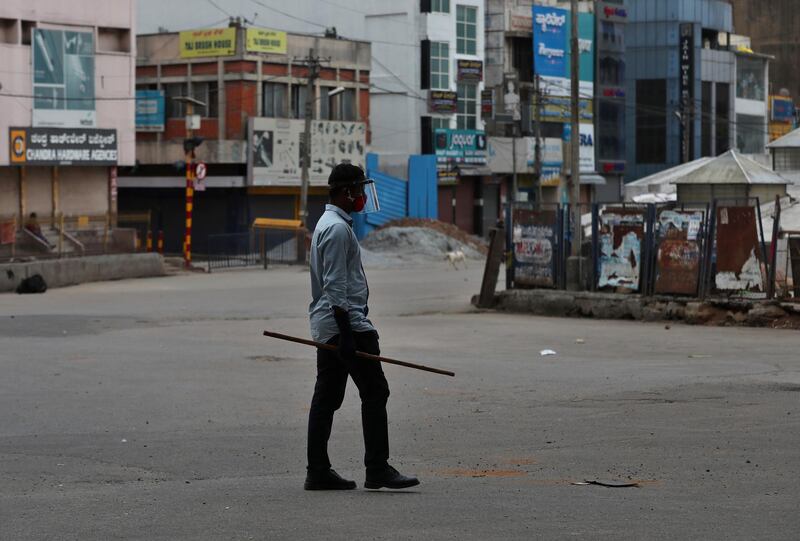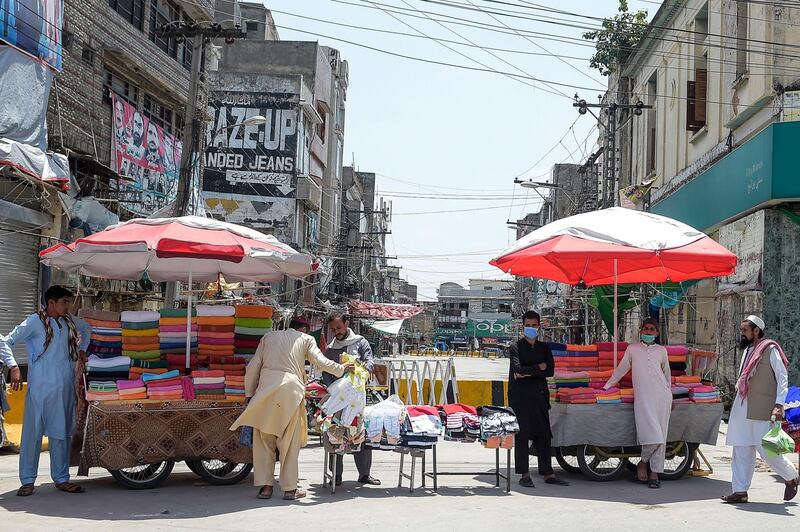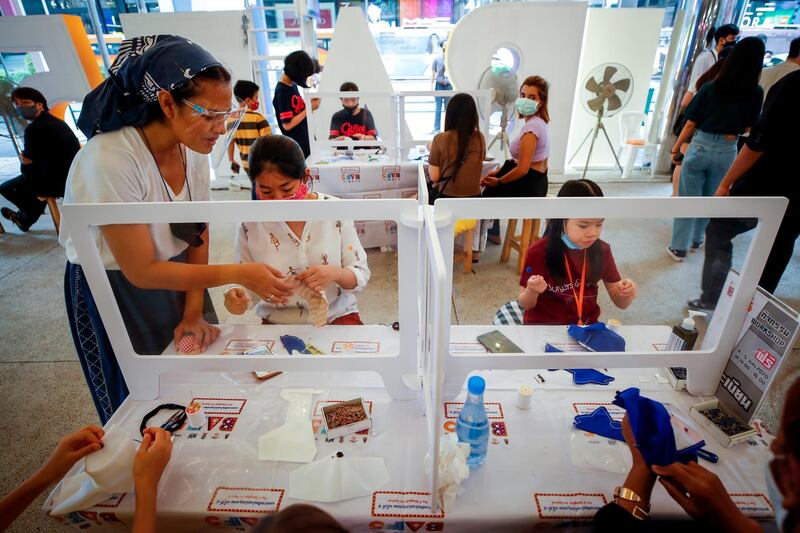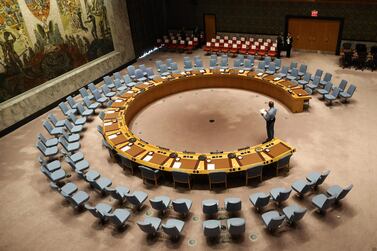The coronavirus pandemic has provided new opportunities for ISIS, Al Qaeda, neo-Nazis, white supremacists and other hate groups, the UN Secretary General has said.
Antonio Guterres said it was too early to fully assess the implications of the pandemic on terrorism, but all of these groups sought to exploit divisions, local conflicts, failures in governing and other grievances.
Mr Guterres told the launch of UN Counter-Terrorism Week that ISIS, which once controlled vast territories in Syria and Iraq, was trying to reassert itself in both countries, “while thousands of foreign terrorist fighters battle in the region”.
“The pandemic has also highlighted vulnerabilities to new and emerging forms of terrorism, such as misuse of digital technology, cyber attacks and bio-terrorism,” he said.
Josep Borrell, the EU’s foreign affairs representative, told the online meeting that a global understanding of the pandemic’s implications on counter-terrorism efforts around the world was needed.
“It is true that, in some places, the crisis has led to a reduction of terrorist activity, mainly due to the mobilisation of state security services,” Mr Borrell said.
“But in other regions, terrorism and human suffering caused by it continue unabated.”
Former American diplomat Richard Haas, who leads the Council on Foreign Relations, believed Covid-19 “will add to the challenges of counter-terrorism”.
“It will perhaps create an environment where more countries become weak or fail,” Mr Haas said.
Recruitment for terrorist organisations would quite possibly go up, he said.
Tunisia’s UN ambassador Kais Kabtani, who chairs the UN Security Council’s counter-terrorism committee, said its recent report on Covid-19 showed the pandemic might have temporarily limited terrorist groups because of lockdowns and travel restrictions.
But Mr Kabtani said groups including ISIS were also exploiting increased social isolation and online use “to spread their propaganda through virtual platforms”.
He said that with global attention focused on tackling the pandemic, terrorist groups were also seeking to capitalise “by undermining state authority and launching new attacks”.
The report by the committee’s executive directorate said the global population, including more than one billion students, was spending more time on the internet as a result of Covid-19.
“The increase in the number of young people engaging in unsupervised internet usage, particularly on gaming platforms, offers terrorist groups an opportunity to expose a greater number of people to their ideas," the experts said.
"Although the relationship between online activity and radicalisation to violence is not fully understood.
“The reported rise in cyber crime could also lead to increased connectivity between terrorist and criminal actors.”
The report said a wide variety of terrorist groups had integrated Covid-19 into their propaganda.
They did this “to exploit divisions and weaknesses among their enemies”, “resulting in racist, anti-Semitic, Islamophobic and anti-immigrant hate speech”.
“These narratives have been fused with an array of new or existing conspiracy theories, particularly by the extreme right, including through linking 5G technology to the spread of the virus,” the experts said.
On the positive side, the pandemic could also disrupt extremist groups' supplymaking it difficult for them to obtain food, medicine, money and weapons.
With the overwhelming global focus on Covid-19, the experts said terrorists might seek "even more attention-grabbing" targets or techniques, such as the May attack on a maternity hospital in Afghanistan.
